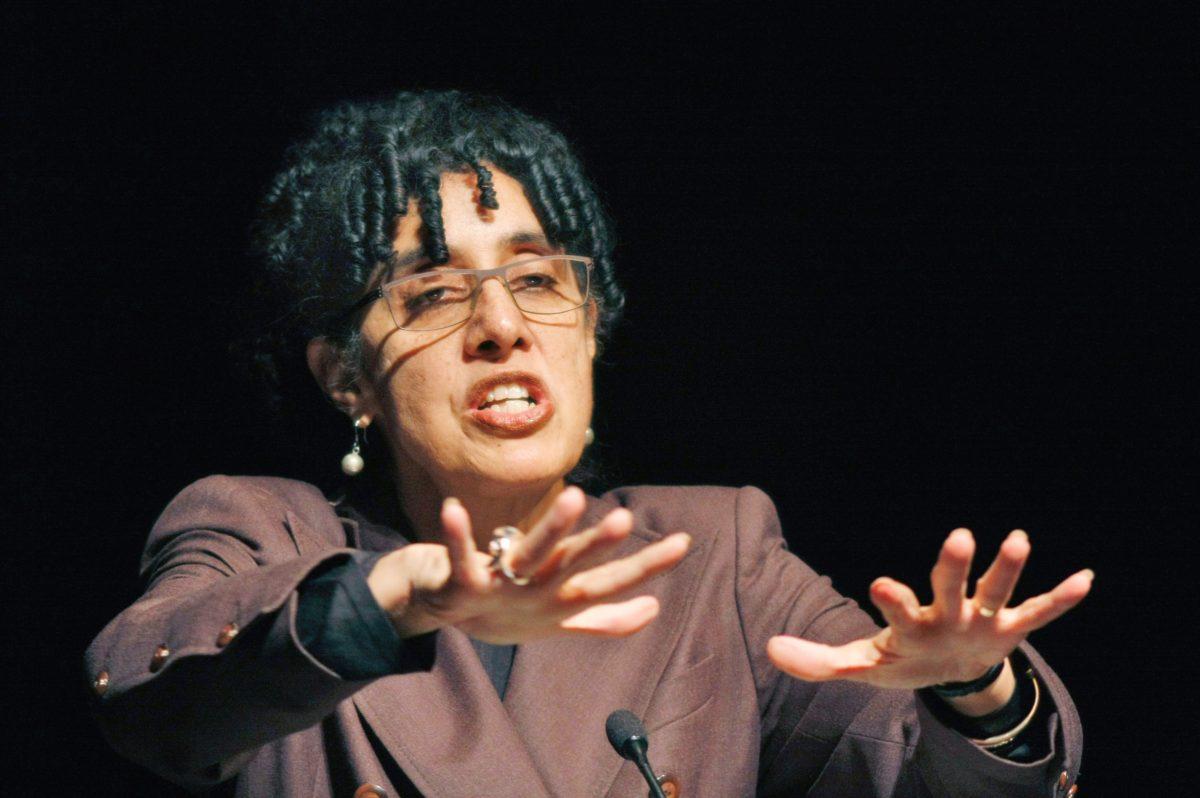The 2010 Dr. Martin Luther King, Jr. Campus Commemoration was held in Stewart Theatre yesterday to celebrate the life and accomplishments of the legendary civil rights activist. Harvard Law School professor and civil rights attorney Lani Guinier presented the keynote speech entitled “Lift Every Voice.”
Toni Thorpe, program coordinator for the African American Cultural Center, said Guinier was chosen by the AACC after considering feedback from faculty, students and staff.
“Professor Guinier is a phenomenal critical thinker who lives her life for the same reasons Dr. King spoke and lived for,” Thorpe said. “She is a wonderful example for our students of a strong woman who went through a difficult time and came through still working for what she believes in.”
Guinier was the first tenured, black female professor at Harvard Law School and has earned numerous awards for her teaching and civil rights efforts. She was brought to the public’s attention in 1993 when she was nominated by President Bill Clinton to head the Civil Rights Division of the Department of Justice. Negative media attention led to her name being withdrawn without a confirmation hearing.
Niambi Hall-Campbell, a doctoral student in psychology, said she came to the commemoration because she believes it is important to participate in campus activities and remember the work of Dr. King.
“I also came to hear Professor Guinier speak, because I have heard some of her work before,” Hall-Campbell said. “She is an exceptional scholar.”
Chancellor James Woodward welcomed the guests of the commemoration by sharing his experiences of growing up in a segregated America and how King’s “I Have a Dream” speech impacted his life.
“He changed your life and my life,” Woodward said. “My children and grandchildren are growing up in a better society because of the work of Dr. King.”
Shiona Caldwell, a junior in political science, represented the African American Heritage Society with her rendition of “Lift Every Voice and Sing” and interim Provost Warwick Arden introduced Guinier.
Guinier began her speech by recognizing the election of Barack Obama as an “emancipatory moment” for African-Americans in American society. She said in the aftermath of the election, however, post-racialism had caused Americans to close down conversations about race.
“Civil rights is not only for people of color,” Guinier said. “Challenges that people of color face are often diagnostic of more systemic problems that confront our country. If we understand what is happening to those people, we understand what is happening to all people in our nation.”
Guinier went on to observe that from 1975 to 2000, the number of people in jail has increased from 380,000 to over 2 million. She said minorities make up the majority of inmates and asserted that the next step for civil rights activists should be to confront this issue.
“We are over-punishing and over-criminalizing rather than treating the source of the problem,” Guinier said. “We do have to deal with this problem because it costs so much money to keep people in prison. That is money that could be spent on education and preventative measures.”
At the end of her speech, Guinier addressed the audience with the assertion that “we are still collectively responsible to realize Dr. King’s speech.”
President of the UAB Black Student’s Board Danielle Thomas said she was very pleased with Guiner’s speech.
“It wasn’t the traditional MLK speech,” Thomas, a junior in applied psychology, said. “She held the audience’s attention because she addressed real issues. I hope students take from this speech the realization that there are still underlying issues we need to discuss about race.”
Michele Price, a freshman in mathematics, said the speech made her think about race issues in a new way.
“I really liked her comparison of race to passive smoke, because that really helped me picture what she was saying,” Price said. “It made me realize that people can be subconsciously discriminatory, even if they don’t mean to be.”
In a private interview, Guinier said she enjoys speaking to college students because they are the next generation of leaders, public servants and possibly even social movement activists.
“I hope students take from my speech a commitment to make discussions of race an ongoing part of their campus,” Guinier said. “Students need to address concrete issues and create an environment where people can learn about race relations and not feel that they will be judged.”
The commemoration was sponsored by the African American Cultural Center, the UAB Black Students Board, the African American Heritage Society and the University Eta Omicron Chapter of Alpha Phi Alpha Fraternity. The members of these groups thanked Guinier for her presence by presenting her with a hand-carved West African bird.








